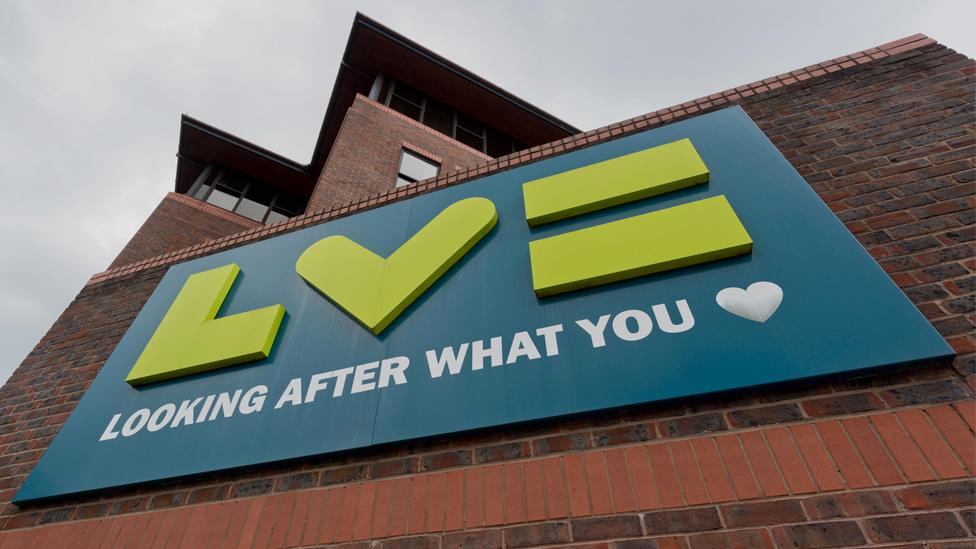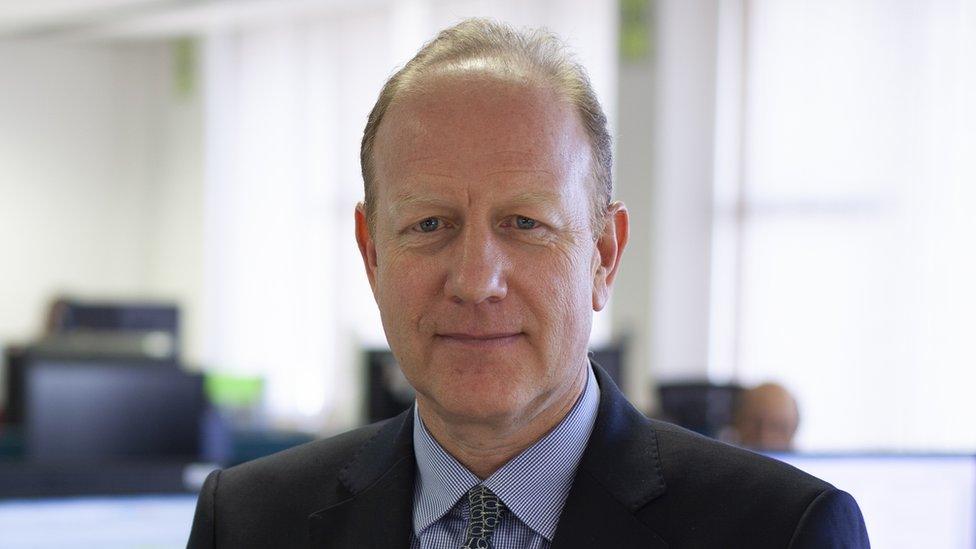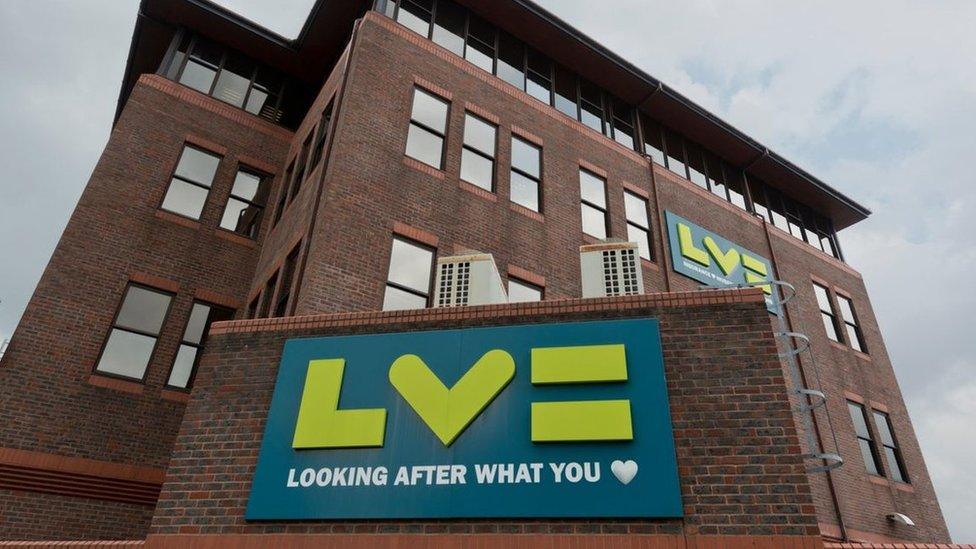LV= members reject sale to private equity firm Bain Capital
- Published

Members of LV= have rejected selling the insurance mutual to US private equity firm Bain Capital for £530m.
The sale of LV= to Bain Capital had been controversial, drawing criticism from politicians from several parties.
LV= chief executive Mark Hartigan had said that for the business to survive it needed to demutualise.
But some LV= members had been unhappy over demutualisation and the size of payouts on offer from the deal.
The Bain Capital takeover would have meant that LV= would lose its mutual status, with members given £100 each as part of the deal.
But the sale did not get enough support from members. Although 69% of a possible 1.1 million voting members were in favour of the transaction with Bain Capital, 75% approval was needed for the sale to pass.
The result followed a meeting in which members discussed whether the company should remain a mutual. Some LV= staff were unable to watch the general meeting on Friday, according to reports.
LV= chairman Alan Cook said: "We want to reassure policyholders that this outcome will mean no changes to their policies or our ongoing commitment to the highest standards of service from LV=."
"I will continue to lead the process to find a way forward that will enable us to provide the right financial outcome for all our members whilst respecting their different wishes," Mr Cook continued, and added that once a way forward had been determined, he would step down as chairman.
Chief executive Mark Hartigan will continue in his role, the firm said.
The firm said it would "swiftly reassess its strategic options and explore alternative ways to provide the best long-term outcome for members, the business, employees and its wider communities".
The LV= board said it had "listened to member concerns about the loss of mutuality and so will in particular explore whether mutuality can be retained either on a standalone basis without undue risk to members, or through a merger with a larger mutual organisation".
Bain Capital said it "remains crucial" that members are "looked after and protected".
"We have always wanted LV= to flourish and become a leading company in the sector, that offers more consumer choice and creates more jobs," a spokesperson added.


Did this vote stir emotions? Most certainly, yes.
It is, after all, about the future of a 178-year-old insurer owned by its members and founded to cover the funeral costs of Liverpool's poor.
Did it raise some fundamental questions? Again, yes.
They ranged from whether members should fund a long-term future they might not profit from, to the appropriateness of a private equity takeover.
Was it a vote on the future of the mutual movement as a whole? No.
LV= has specific problems, some of its own making. Experts say other mutuals have already navigated similar issues successfully.
Meanwhile, mutual building societies still account for 23% of the UK residential mortgage market, hold 18% of people's cash savings, and have 40% of cash ISA balances.
There are challenges, but as this vote shows - and the LV= board now acknowledges - there is plenty of life in the old mutual dog yet.

LV= attracted a number of bids when it first proposed a sale of the business, including from rival mutual Royal London.
LV=, which was founded in 1843 and formerly known as Liverpool Victoria, had pushed back against approaches from Royal London.
It said that so-called "with-profits" members, who legally own LV=, should not have to "finance a future that requires significant investment, which many would not benefit from".
Royal London said on Friday it had "offered to enter into immediate and exclusive discussions with LV= to agree a mutual merger that will offer LV= customers the opportunity to have their life savings protected and invested by a mutual".
LV= said it had received an "unsolicited preliminary merger proposal from Royal London" on 8 December.
"The outline proposal from Royal London is at an early stage and is subject to discussion, due diligence and detailed negotiation of financial and other terms. There can be no certainty that a transaction will be agreed," LV= said.

Mark Hartigan says LV= has to demutualise to survive
The LV= group had a "challenged" capital structure and operated in an increasingly competitive market dominated by well-capitalised, global insurers, it said when trying to convince members to vote for the sale.
The heart of the problem, Mr Hartigan said earlier, was that because it was a mutual it was unable to raise funds due to a cap on its debts.
- Published16 November 2021
